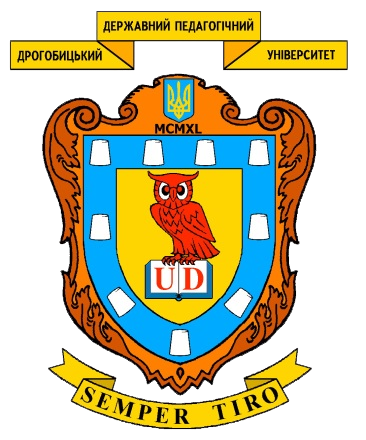PSYCHOLOGICAL FOUNDATIONS OF ACTIVE METHODS USED IN THE TEACHING OF A FOREIGN LANGUAGE TO THE LYCEUM STUDENTS
DOI:
https://doi.org/10.24919/2312-8437.43.159090Keywords:
educational activity, interactive methods, problematic, programmable learning, motivation, creative cooperationAbstract
The method of teaching can be valid when it is based on methods and techniques, activating the activities of the person who teaches, primarily thinking, and contribute to the mental development of the individual. These are the active teaching methods that are the answer to didactics to the need for the laws of learning knowledge, open to psychological science, and they provide the assertion of the system of developmental education. There are many active methods in pedagogy, all of them are classified and discussed in methodical literature from the position of didactics, i.e., in the pedagogical aspect. From the point of view of psychology, they can be divided into «three groups of methods, the most interesting for use in order to control the formation of thinking. These are: a) programmed education, b) problem learning and c) interactive (communicative) learning». All educational tasks of programmed education are divided into three types: substantive, logical and psychological, which in turn can be divided into groups that distinguish between the mechanisms of thinking actions. In order for objective tasks to stimulate the thinking of those who are taught, they must be original, non-traditional, belong to unusual circumstances, to rare or even unlikely situations. Logical types of tasks are such tasks, which require for their decision reasons for the laws of logic, i.e. actions in the mind, without any support to the exter-nal material object-guidance. The reasoning is aimed at identifying the conditions of the task, i.e., to find out what data are really nece-ssary for solving the problem that needs to be eliminated as super-fluous, and what data necessary for a successful solution of the prob-lem are absent in its formulation. The psychological types of tasks differ from the previous types in that they can provoke the false actions of the person being taught, because significant moments that have a direct relation to the problem’s solution can be concealed by the insignificant ones. The problem of learning gives, firstly, the greater intellectual activity of the learner, which is related to the cognitive need, the de-sire to look for an unknown, without which he can not solve the prob-lem. Secondly, knowledge that is studied as general laws or methods of action makes it possible to use them further in solving a wide range of other tasks, and not as an illustration of a case that is communicated to students in the finished form in a traditional education. In the application of interactive methods, the spirit of compe-tition, rivalry, which manifests itself when students collectively seek the truth, act more than the intellectual activity. Interactive methods is the creation of a situation of joint creative (productive) activity of the teacher and lyceum, where the process of interaction of indivi-duals, and not just the process of knowledge seeking.
References
Волкова Н.П. Педагогіка : навч. посіб. / Н.П. Волкова. – К. : Академвидав, 2007. – 616 с.
Маркова А.К. Формирования мотива учения : монография / А. Маркова, П. Мопис, А. Орлов. ‒ М. : Просвищения, 2000. – 412 с.
Педагогическая психология / под ред. Л. Регуш, А. Орловой. – СПб. : Питер, 2010. – 416 с.
Прометун О. Сучасний урок. Інтерактивні технології навчання / О. Прометун, Л. Піроженко. – К., 2004. – 192 с.
Сколко Р. Мотиви в юнацькому віці / Р. Сколко // Психолог. − 2007. ‒ № 1. ‒ С. 12‒17.
Сухраменда Є. Особистісно зорієнтоване навчання ліцеїстів як чинник розвитку вмінь розуміння іншемовленневого тексту / Є. Сухраменда // Молодий вчений. ‒ 2017. ‒ № 4. ‒ С. 247‒250.
Чаговець Л. Динаміка мотивів навчальної діяльності у шкільному віці / Л. Чаговець // Психолог. ‒ 2008. ‒ № 10. ‒ С. 3‒7.
Шаповал Т. Розвиток індивідуальності і мотиви учіння в старшому шкільному віці / Т. Шаповал // Психолог. ‒ 2005. ‒ № 1. ‒ С. 3‒7.







